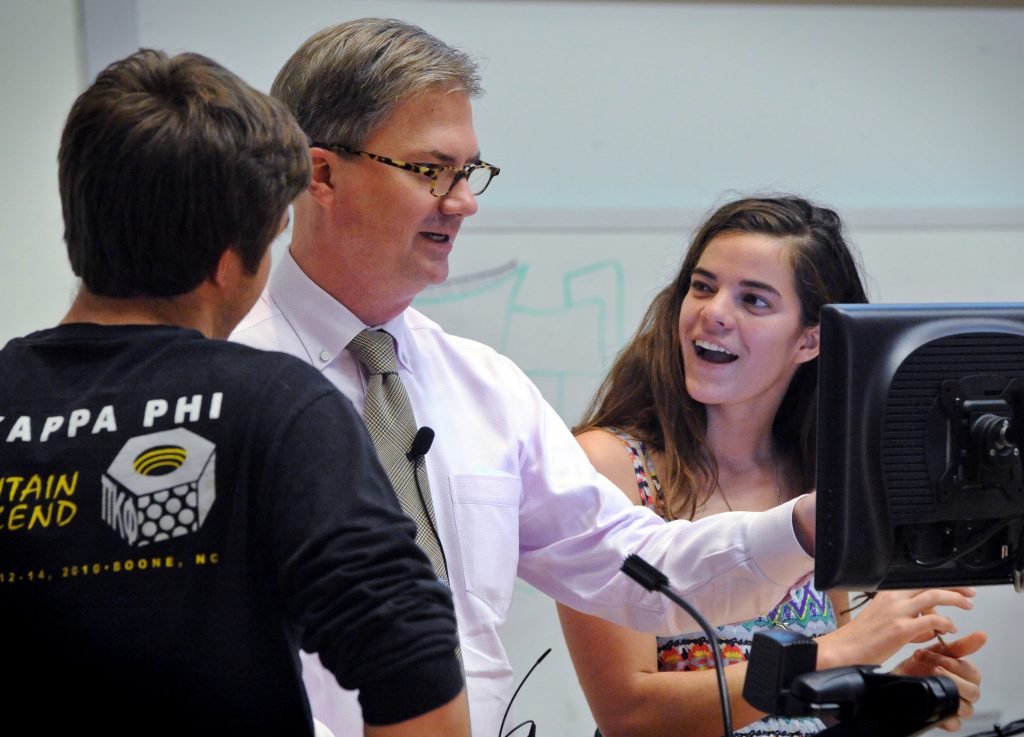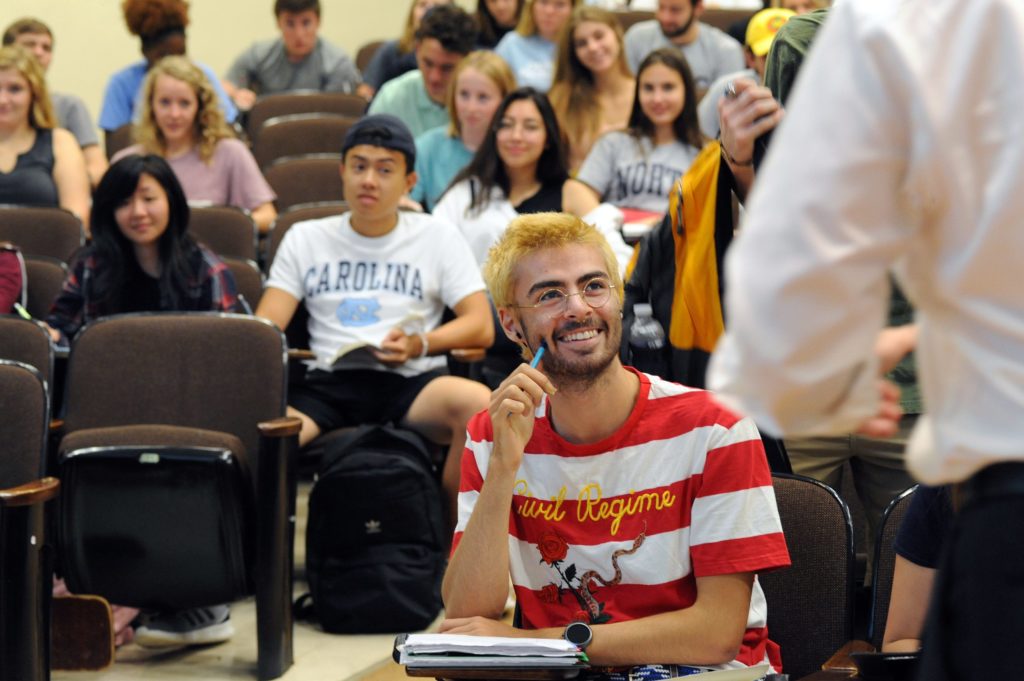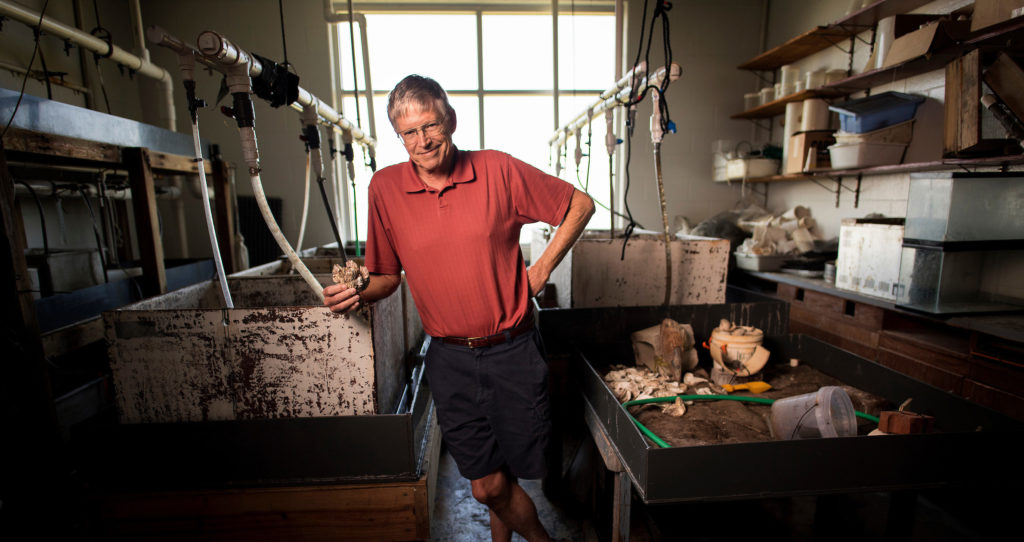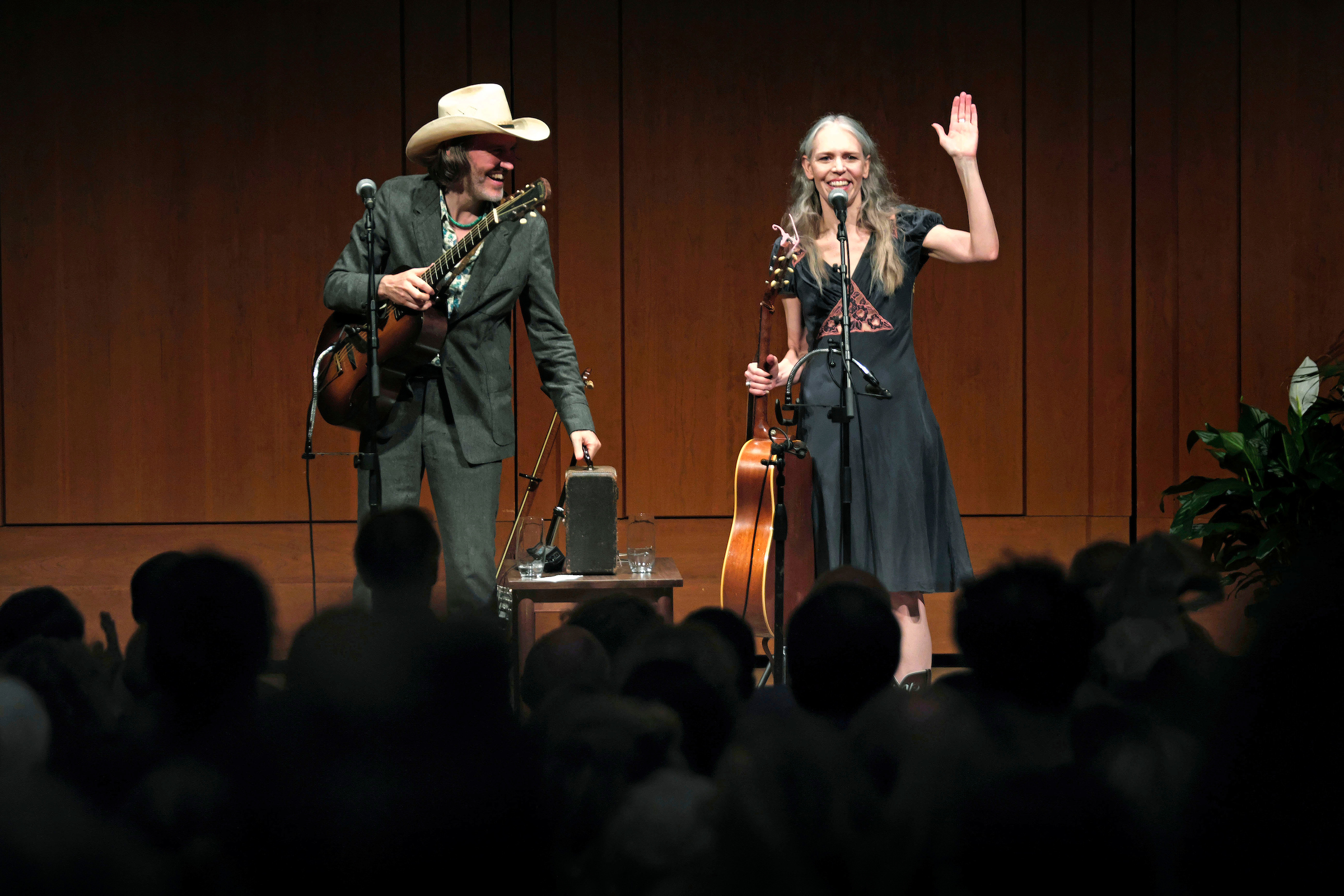
Despite her preference to sing rather than speak, Gillian Welch filled the Oct. 2 Thomas Wolfe Lecture with plenty of stories about creative inspiration for her lyrics, while telling other stories through her songs.
On the eve of Thomas Wolfe’s 118th birthday, the ceremony brought the Grammy Award-winning lyricist and musician and her song-writing partner David Rawlings to Moeser Auditorium.
Welch, known for her at-times dark Americana songs, is the first musician to be awarded the Wolfe Medal. The Thomas Wolfe Society and Carolina created the medal in 2000 to commemorate the birth of Wolfe, an alumnus (class of 1920) and author of novels such as Look Homeward, Angel.
Mary Floyd-Wilson, professor and chair of the English and comparative literature department, welcomed the audience. Then Savannah Bradley and Grace Morse, Thomas Wolfe Scholars in the class of 2022, stood on either side of Welch and slipped the medal over her head to the audience’s applause.
‘Powerful musicality’
Bland Simpson, a Kenan Distinguished professor of English at Carolina, prefaced Welch’s introduction by mentioning the “powerful musicality” of Wolfe’s prose, that Wolfe wrote a song for his father and that he included lyrics and music titles in his writings. Simpson said it is fitting that Welch, whose work in a deeply American art and whose art is the composition of lyrics and melodies that reach our “hearts, minds and I daresay, our souls,” should receive the Wolfe Medal.
Earlier, Rebecca Godwin, a Barton College professor of English who is president of the society, said that Wolfe’s writings had inspired at least 44 musical compositions, ranging from works for ballet to symphonic to jazz arrangements.
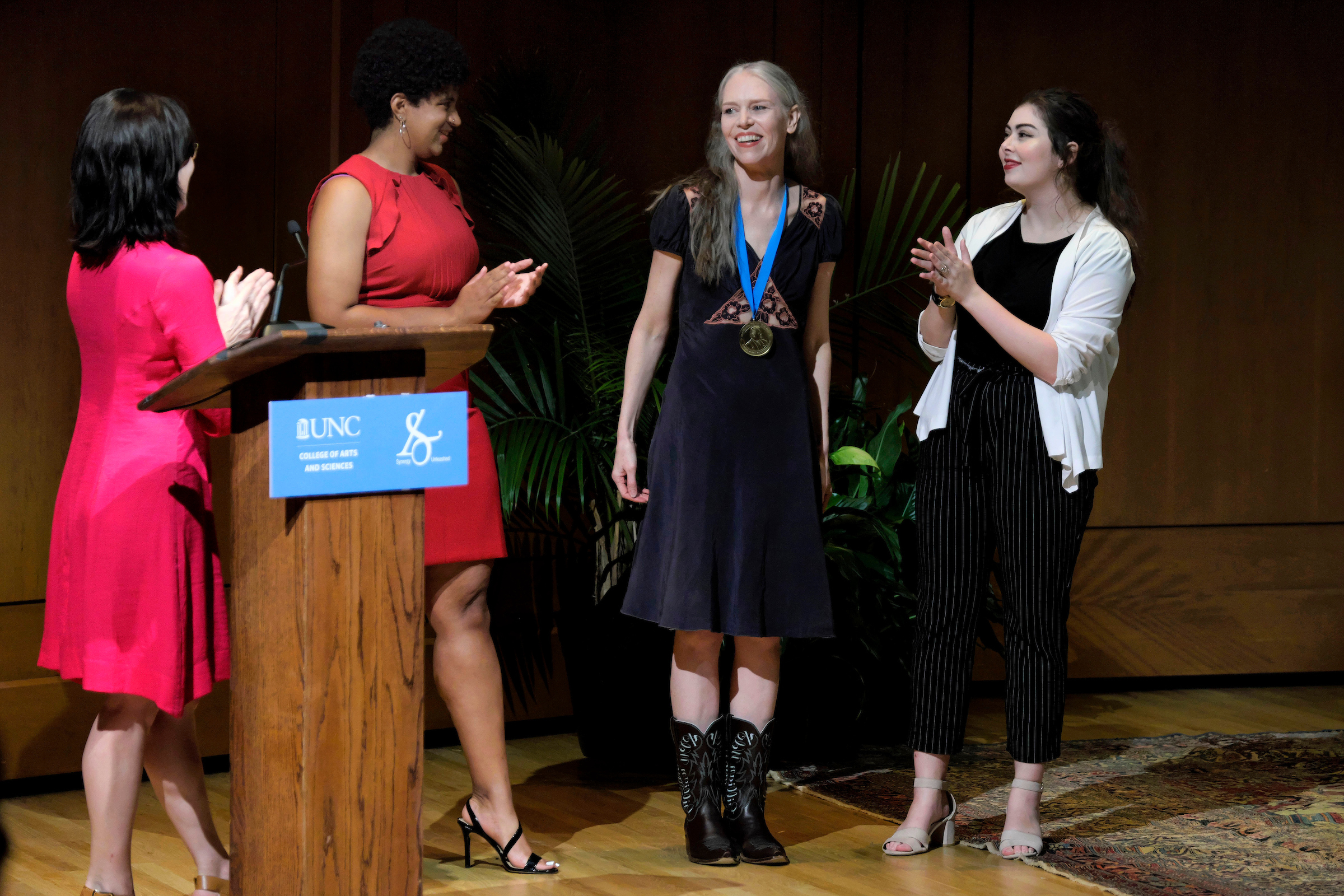
Simpson called Welch a prophet and minstrel before welcoming her onstage.
Welch and Rawlings thanked the crowd and the University for being honored. Welch said it was “personally meaningful because of what Thomas Wolfe means to me.” They then launched into the song “Hard Times” with Welch’s banjo-playing front and center. Welch called their time on stage a show, then corrected herself to say lecture, much to the audience’s delight.
As they prepared to perform “The Way it Goes,” Rawlings and Welch said the song exemplifies their interest in how versions of folk songs become more and more focused over time, but less linear, as verses are lost or altered. They wrote around 20 verses before settling on the song’s final form. “We accelerated the process by a couple hundred years,” Rawlings joked.
Writing ‘Orphan Girl’
Welch remembered a more streamlined process for writing one of her earliest songs “Orphan Girl.” “It was one of the very few without working with Dave,” she said. “I think his contribution was saying, ‘It’s done.’”
Rawlings added, “I think I said, ‘You don’t have to worry about that one.’”
Welch said that, although she is an adopted child, she did not realize in any way that the song was autobiographical. “I’m often the last to know,” she said with a shrug. She went on to say that she knows little about her birth parents, but knows that her mother came from North Carolina. “My blood’s from here, anyway.”
For inspiration, Welch mentioned books. Her song “Annabelle” was borne from a Walker Evans photo of a child’s grave in James Agee’s Let Us Now Praise Famous Men. “It broke my heart,” said Welch, who then wrote a mother’s lament for her daughter, whose death leaves behind “only words on a stone.” They performed the song with Rawlings’ guitar picking ending it.
Welch recalled that Carolina alumnus and respected Nashville music publisher David Conrad gave her and Rawlings their first break. “I have a vivid memory of sitting across from his desk and playing ‘Orphan Girl,’ then he shook my hand and said, ‘I have no idea what we’re going to do with you but we’re going to sign you.’ I’m glad he listened to his heart.”
Inspirations and a trusted ear
Other inspirations came from overhearing college boys ridiculing Elvis Presley, which led Welch to write “Elvis Presley Blues.” The audience listened to the song, its lyrics conjuring visions of Elvis shaking it like a “holy roller,” a “Harlem queen” and a host of other ways.
Welch then stressed how important it is for a lyricist to have what she called “a trusted ear around the house.” She said that a few days after she was absently singing bits of a tune she equated to a nursery rhyme, Rawlings told her that she should finish the song. She did and that song became a crowd favorite, “Look at Miss Ohio.”
The musicians performed “Revelator,” perhaps their best-known song, before answering a few questions from the audience about how they first met and learned to harmonize, Welch’s micro view of her surroundings and how that contributes to their writing, and their memories about creating
“April the 14th.”
“We’ll send you home with one more,” said Welch, and the duo ended the night with the romping, stomping “Red
Clay Halo.”
By Scott Jared, University Gazette

